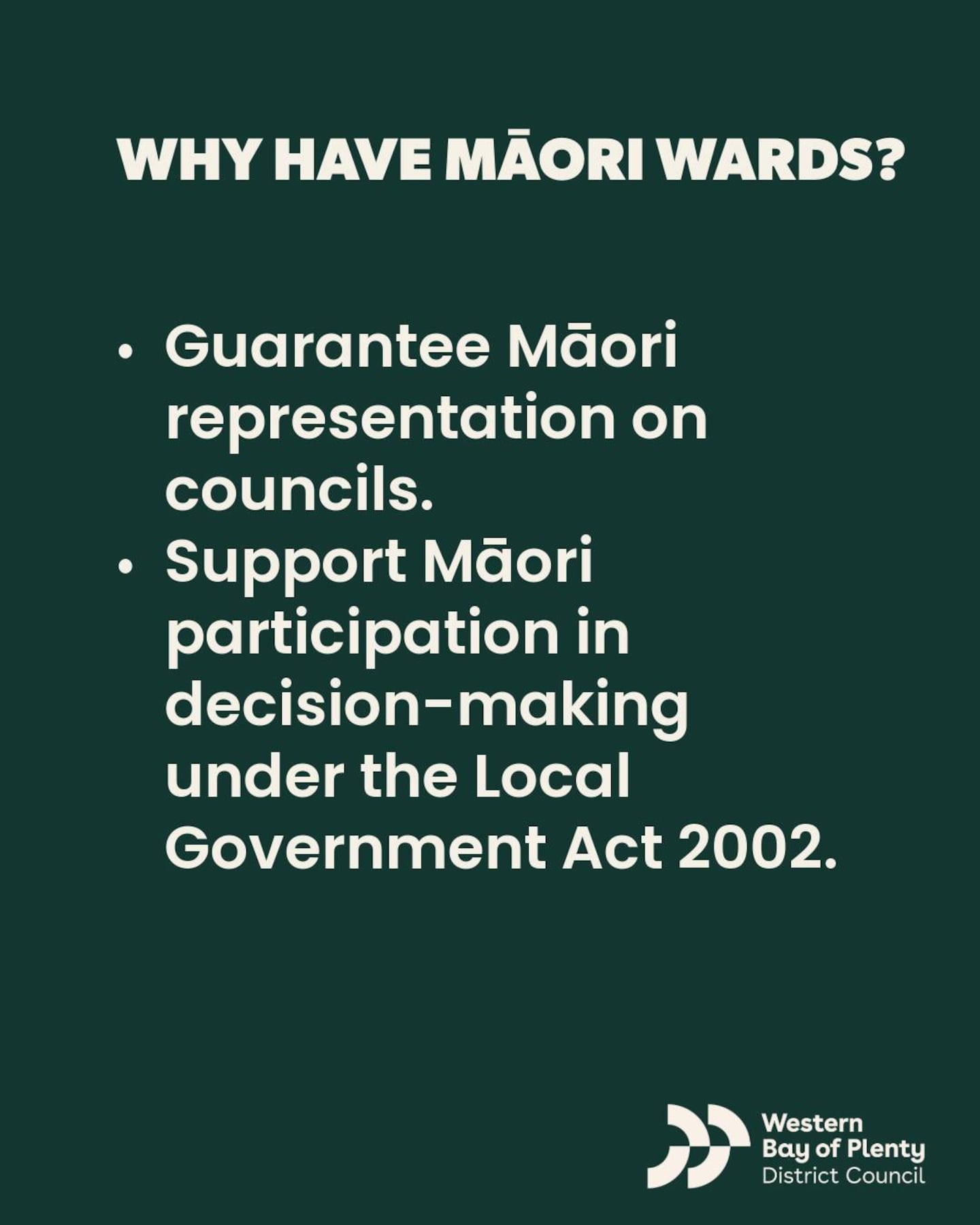Act MP Cameron Luxton claims the Western Bay of Plenty District Council is campaigning on social media to keep its Māori ward.
The council chief executive says it is not campaigning for or against the ward, and has the electoral officer’s backing.
The council posted information on its Facebook and Instagram pages about the upcoming referendum on Māori wards, happening alongside the October council elections.
The August 15 posts had nine text slides with details about Māori wards, their history, and why the referendum was happening.
Luxton, Act’s local government spokesman, said in his view the slide titled ‘Why have Māori wards?’ was “taking a position”.
It gave two reasons:
- Guarantees Māori representation on councils.
- Support Māori participation in decision making.
Tauranga-based Luxton told Local Democracy Reporting the council should not be using its channels to promote a position in an election.

“I’m concerned that there’s a lack of balance in their post.
“It’s fine to be informing, but if you’re going to inform, you have to make sure … you’re taking a precautionary approach and not going to one side or the other."
He said there should also be a slide covering arguments about “why not have Māori wards”.
“You don’t need to be taking a position for or against with ratepayers’ funds.”
Luxton said the council should remove the slide.
A “vast majority” of 78% were opposed to establishing a Māori ward for Western Bay in a 2018 poll held by the council, Luxton said.
He also shared his concerns about the council’s post in a comment on the Facebook post and on his page.
The Act Party and lobby group Hobson’s Pledge have also shared social media posts claiming the council is campaigning for Māori wards.
Last year the council reaffirmed its decision to have a Māori ward, which triggered a referendum on the decision.

The coalition Government directed councils to rescind Māori wards established after 2021 or hold a binding referendum on them at this year’s election.
The council first voted to establish a Māori ward in August 2023, having decided not to consult the community again.
In June, Hastings District Council removed social media videos of councillors talking about the benefits of Māori wards after it received a legal letter from lobby group Hobson’s Pledge.
Luxton wrote to the Office of Auditor-General about the videos and received a reply saying they would not be investigating as the videos were removed.
The response letter said the office had reminded councils about the importance of not using council resources for electioneering purposes, including relating to polls.
Luxton said the Western Bay council “should heed the advice of the Auditor-General and not even get involved in anything that could be seen to be a lack of balance”.
“It’s ratepayers’ money being used, so they need to be especially cautious.”
The Hastings’ case had set a “clear precedent”, so Luxton did not think there was “much value in dragging” Western Bay council to the Auditor-General.
Acting council chief executive Miriam Taris said they were aware of the comments about their social media posts.

“We want to be clear that council is not campaigning for or against Māori wards.”
The council’s electoral officer, Warwick Lampp, had reviewed the content and confirmed he was comfortable with the posts, and that they were factual, correctly setting out the referendum process and timeline, she said.
“He does not consider them to show council taking a particular stance.
“We’re not going to remove the post.”
The council had taken care to remain neutral in its election communications, Taris said.
The purpose of the posts was to provide factual information about the referendum process and local elections, she said.
This was to ensure people understood why the referendum was included with voting papers.
They also outlined key dates, milestones, and voting information so the community was well-informed, Taris said.
“We acknowledge there are differing views in the community, and council’s role is to provide clear, factual, and neutral information.
“We will continue to apply that same approach across all election-related communications.”

Lampp confirmed he had reviewed the Facebook post.
“I do not believe that the slide ‘Why have Māori wards’ is campaigning, nor do I think that it is promoting a position.
“The two bullet points under that heading are facts.”
LDR is local body journalism co-funded by RNZ and NZ On Air.




